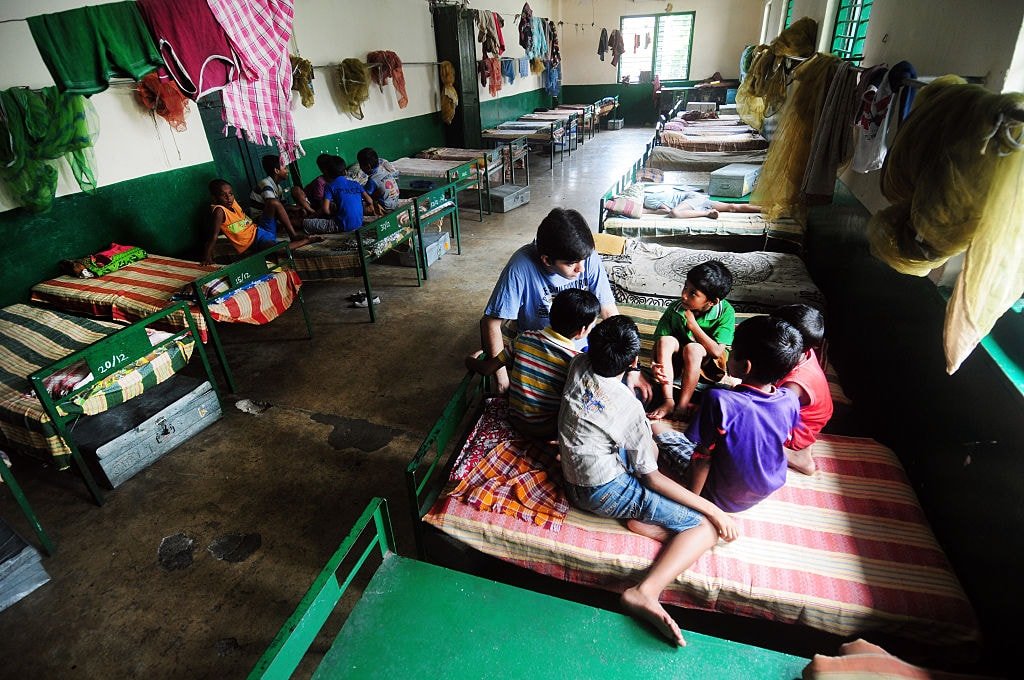Turning 18 is a milestone celebrated worldwide as the transition into adulthood. It signifies independence, freedom, and the ability to make one’s own choices. However, for orphans who have spent their formative years in foster care or institutional settings, this turning point can be fraught with challenges and anxieties. The lack of familial support and guidance often leaves them ill-equipped to navigate the complexities of independent living.
This article delves into the unique difficulties faced by orphan youth when they turn 18, exploring the systemic issues that contribute to their vulnerability. We will examine the limitations of government assistance programs, the struggles with housing insecurity and financial instability, and the challenges in accessing healthcare and education. Furthermore, we will highlight the crucial role of support systems designed to empower these young adults and ensure a successful transition into adulthood.
Challenges of Turning 18 for Orphans
The transition from childhood to adulthood is inherently challenging, but for orphans, it presents a unique set of obstacles. The absence of a stable family unit means they lack the emotional support, guidance, and practical skills necessary to thrive independently. Many have experienced trauma, instability, and loss throughout their upbringing, leaving them with emotional scars that can hinder their ability to cope with the demands of adulthood.
Furthermore, orphans often face discrimination and societal stigma, which can limit their opportunities and access to resources. They may struggle to find employment due to a lack of references or experience, leading to financial insecurity and dependence on government assistance programs. The transition from foster care to independent living can be particularly jarring, as they are suddenly responsible for managing their own finances, finding housing, and navigating complex bureaucratic systems.
Government Assistance Programs
While governments implement various programs to support vulnerable youth, these often fall short of meeting the comprehensive needs of orphans transitioning into adulthood. Many programs have age restrictions, ceasing once individuals turn 18, leaving them without crucial financial assistance, healthcare coverage, or educational support. The eligibility criteria for these programs can be stringent, requiring documentation and proof of income that many orphans struggle to obtain.
Moreover, the bureaucratic processes involved in accessing government assistance can be overwhelming and time-consuming, further exacerbating the challenges faced by young adults navigating this transition. Limited funding and resources often result in long waiting lists and inadequate support services, leaving many orphans struggling to meet their basic needs.
Housing Insecurity and Financial Instability
One of the most pressing challenges facing orphan youth when they turn 18 is housing insecurity. Finding affordable and safe accommodation can be incredibly difficult, especially for those with limited financial resources. Many end up living in overcrowded or substandard conditions, putting their physical and mental well-being at risk.
Financial instability is another major hurdle. Without a stable income source, orphans often struggle to pay rent, utilities, food, and other essential expenses. This can lead to a vicious cycle of poverty, where they are forced to make difficult choices between basic necessities, further jeopardizing their long-term well-being.
Healthcare and Education Access
Access to quality healthcare and education is crucial for the successful transition into adulthood. However, orphans often face barriers in accessing these essential services. Without health insurance coverage, they may delay or forego medical treatment, leading to worsening health conditions and increased vulnerability to illness.
Similarly, educational opportunities can be limited due to financial constraints, lack of support systems, and academic challenges stemming from their past experiences. This can hinder their ability to pursue higher education, secure stable employment, and achieve their full potential.
Support Systems for Orphan Youth
Recognizing the unique challenges faced by orphan youth transitioning into adulthood, various organizations and initiatives have emerged to provide crucial support systems. These include:
Mentoring Programs
Mentoring programs connect young adults with experienced individuals who offer guidance, encouragement, and practical advice on navigating life’s complexities. Mentors can provide emotional support, help them develop essential life skills, and connect them with valuable resources.
Transitional Housing Programs
These programs offer safe and affordable housing options for young adults transitioning from foster care or institutional settings. They often provide wraparound services such as case management, job training, and financial literacy workshops to empower residents to achieve self-sufficiency.
Educational Scholarships and Grants
Financial assistance through scholarships and grants can help orphans overcome the financial barriers to pursuing higher education. These programs recognize their potential and provide them with the opportunity to unlock their academic aspirations and secure brighter futures.
Conclusion
Turning 18 for orphans marks a significant turning point in their lives, one fraught with challenges and uncertainties. The lack of familial support, coupled with systemic issues surrounding government assistance, housing insecurity, financial instability, and access to healthcare and education, can create a daunting landscape for these young adults. However, by strengthening existing support systems, implementing comprehensive policies that address their unique needs, and fostering a society that embraces and empowers orphan youth, we can ensure they have the opportunity to thrive and build fulfilling lives.



